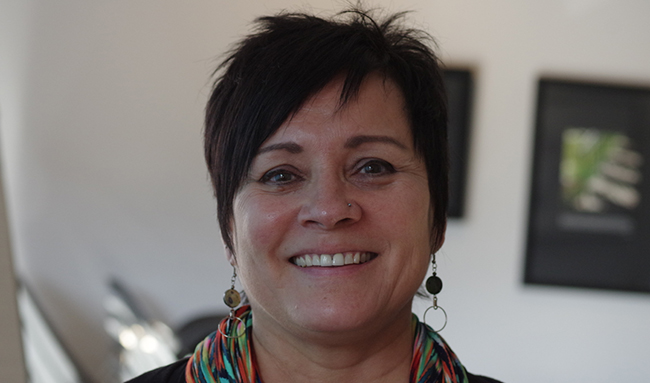Situation Table to help at-risk people in Thunder Bay

By Rick Garrick
THUNDER BAY – Canadian Mental Health Association Thunder Bay CEO Sharon Pitawanakwat recently announced the launch of the Situation Table to help at-risk people in Thunder Bay.
“The Situation Table is a method of bringing together a really wide diverse group of providers in our community who are tasked to address imminent risk in our community,” says Pitawanakwat, a Wikwemikong citizen who has been working with CMHA Thunder Bay for about 10 years. “So it’s somebody in the community that one of the partners has been working with. They have exhausted all of their ability to be able to support this person on their own and they need help. If they don’t support the individual, the person’s risk level is going to increase and they could either harm themselves, harm others or their condition could get very serious.”
Pitawanakwat says the partner brings the case to the Situation Table, which is held twice a month to create coordinated action plans to support specific and complex situations. The partners are from different sectors, including mental health and addictions, justice, social services, employment and education.
“We have over 30 partners sitting around the room,” Pitawanakwat says. “It’s based on a very structured process, so they go through what is called the four-filter process and then they develop an intervention team. So it’s outside of the normal day-to-day business, but it gives us an opportunity to go and do some intervention in the community to mitigate the risk.”
CMHA Thunder Bay also provides a range of programs and services to the community, including Case Management Services; Crisis Response Services; Education and Training Program; First Place Clinic and Regional Resource Centre; and New Foundations.
“About 40 per cent of the people we serve are Indigenous people of this area,” Pitawanakwat says. “Anybody who comes in the door who is in need will get the support that they need to the best of our ability. All of the five services that we offer are maxed right out to their capacity. We are way over our targets in all service areas, so they are all pretty important and all of them serve a great need in the community.”
Pitawanakwat says the New Foundations program, which is located on the main floor of the CMHA Thunder Bay building at 200 Van Norman Street, is the most active on-site service.
“There’s probably about between 40 and 60 people who come to that service every day of all nations,” Pitawanakwat says. “It’s a community of like-minded people who are coming together to work on developing skills, so it could be in employment, it could be in education, it could be in social rehabilitation.”
Pitawanakwat says the Crisis Response Services program includes a 24-hour, 365-day-a-year phone line — 346-8282 in Thunder Bay or 1-888-269-3100 in the district — for people who are in distress in the community.
“It could be anything,” Pitawanakwat says. “It could be: ‘I’m really lonely tonight and I need somebody to talk to’ to ‘I’m going to commit suicide and I have a plan and I’m doing it right now’ and anything in between.”
Pitawanakwat says people also visit the administration office on the second floor of the 200 Van Norman Street building for assistance.
“We can’t help all of them, but what we are committed to is at least helping them get connected to whatever services are out there,” Pitawanakwat says.

